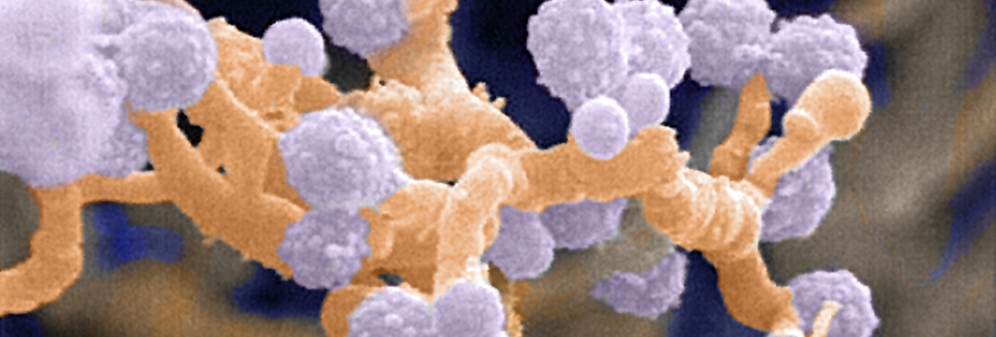Seabed life promises new wave of antibiotics
The search is on for new antibiotics, with antimicrobial resistance now one of the world’s most pressing public health issues.
Researchers from the Bristol BioDesign Institute (BBI) and the University of Newcastle have found microorganisms in the natural world that can produce molecules with antibiotic properties, raising the prospect of a new generation of drugs that can combat ‘superbugs’ – strains of bacteria resistant to current antibiotics.
Using cutting-edge synthetic biology methods, the team has conclusively shown that Verrucosispora maris (V. maris), a bacterium that lives on the Pacific seabed, contains an enzyme, called AbyU, that is instrumental in forming a molecule known as abyssomicin C, a potent antibiotic. This is the first-ever proof that the AbyU-catalysed reaction, known as the Diels-Alder reaction and used extensively in synthetic chemistry, occurs in nature.
But how does AbyU perform this enigmatic reaction? To answer that important question, the team determined the atomic structure of AbyU then simulated the Diels-Alder reaction in the enzyme using techniques including quantum mechanics.
‘Once we had figured out how this reaction works, we could take things one step further and show that AbyU could also perform the Diels-Alder reaction on other molecules – including some that are difficult to transform using synthetic chemistry,’ said Dr Paul Race, Senior Lecturer in the School of Biochemistry and the academic lead for the Bristol team. ‘One of the things that we are now attempting to do is exploit this transformation to develop ‘non-natural’ analogues of abyssomicin C that are even more potent antibiotics than the parent compound.’
Since the initial discovery of AbyU, the team has broadened its search to cover other regions such as the Atlantic Ocean, and has identified more enzymes in nature that are capable of playing a role in creating new molecules with antibiotic and other useful properties. The work is also producing new links, such as a collaborations with colleagues in Thailand.
‘This approach is yielding all kinds of possibilities for new antibiotics,’ said Dr Race, ‘and the results will have an impact on medical practice across the world. This is the kind of work that Bristol excels at, thanks to the concentration of expertise and resources in flagship institutes like the BBI.’
